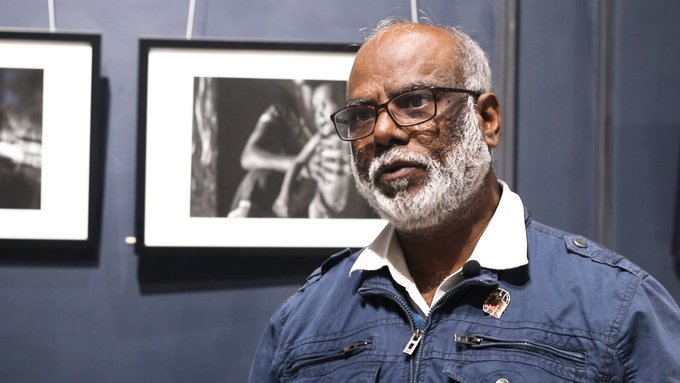“Quality of photojournalism will always be important”
When it comes to documentary photography in India, the mention of Sudhark Olwe is inevitable. The Padma Shri awardee has been documenting challenging social issues such as manual scavenging and poverty, for many years now. Olwe shares his views on photography as an art, the moral responsibility of photographers and photography in the digital age with Media India Group.
Can photography be described as an art?
Since photography is done with a camera, it doesn’t exactly come in the category of art. However, many photographers are doing wonderful work in photography that can be considered art. Many facets of photography can be turned into art, whether it is landscape photography or people photography or any other form. It is beautiful because you play with the lights.
For me, photography is a social mix. It is changing the situation of the people and addressing the social issues. I have graduated from art to more of street and social documentary photography.
Is it the moral responsibility of the photographers to address socially relevant issues?
It is very important that the photographers, artists, filmmakers, painters and writers use their talent for social causes. Every artist or photographer should choose some socially relevant issue, keep working on it so that the representation becomes more powerful and reaches the people and they start transforming and educating themselves and change the situation. Once it reaches maximum people, then the transformation of the society can start.
And photography, no doubt, is a beautiful way to reach to the hearts of people slowly.
With so many photo editing applications and latest smartphone models fitted with high-quality cameras, how will you describe photography in this digital era?
Photography nowadays is everywhere; on Instagram, Facebook and even WhatsApp. However, the quality of photojournalism will always remain. In photography, there is a man behind the camera, his thoughts, his process – everything comes to the forefront. The measures taken by the photographers while capturing will be always relevant and important.
The images captured by professional photographers, and artists, will remain there for a history. I don’t feel the threat with everyone having a camera or photography becoming a part of our daily life, because quality will always remain important.
How important is criticism for photographers?
I think you have to take everything sportingly. If somebody is telling you some critique, you understand and learn and then carry it with you. I feel the dialogue should be always there, it should be open and it should be fair. You should take the criticism to change yourself and be even better. It helps in learning something different and going to the next level.
You have been into photography for nearly three decades now. What kept you motivated for so long?
In beginning it was for bread, and now it’s for passion. I am not tired of anything because I love photography, meeting people and learning something every day at a photography session. It’s more like learning something and changing yourself every day. I learn from each and everybody. My friendship grows with the subject, my bonding grows with them, and their trust gives me a lot of strength to keep working.










